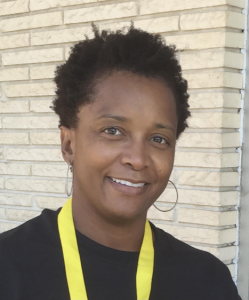Guest blog by Matt/M11106
On March 16, 2021, Robert Long was charged with killing 8 people, 6 of them Asian women, in Acworth and Atlanta, Georgia. SMART recognizes the deeply intertwined nature of the racism and misogyny that played a role in this tragedy. We mourn the loss of life and send our deepest condolences to the victims’ families, friends, and communities. We are taking this occasion to publish a post by the facilitator of our meeting on Sexual Maladaptive Behaviors.

An Open Letter to Men Who Struggle with Sexual Maladaptive Behaviors:
According to the Washington Post, Robert Long told police that he has “a sexual addiction” and the massage parlors and spas he targeted were “a temptation for him that he wanted to eliminate.” This tragedy has made me think of how SMART could have helped Long better manage his impulses. I believe SMART can help Long and any other man struggling with these thoughts and behaviors.
I wish that Long had attended some of our SMART meetings on sexual maladaptive behaviors. As it stands, he is charged with eight counts of murder, so it is too late for our meetings to help him and prevent the tragedy from occurring. But even in jail, a man might want to find a calmer mental state regarding his maladaptive behaviors.
If Long had attended, he might have shared that he wanted to remove temptation at massage parlors. He might have said he was struggling with shame around his sexual behaviors, as his roommates from rehab have said.
In SMART, we often manage temptations by avoiding the situation, escaping the urge, or substituting healthy activities. There will always be temptations for us, but we can learn how to choose behaviors so that the temptations that are problems for us can be parts of other people’s lives, rather than our own.
We often respond to shame with a SMART vocabulary exchange, like replacing the shame of being a bad person with regret for your past behaviors. That exchange may make it easier to plan and achieve new behavior in the future.
We’d also question the bad-person description. We might reframe it as “my actions were not consistent with my beliefs”. Then we can ask: Do you believe these beliefs that you mentioned, which you may have learned from other people? Do you want to change your beliefs? Do you want to change your actions?
The men who want to change their actions in this area often begin by saying “I don’t want to treat women as objects.” Some men find it helpful to remember that the women they see are somebody’s mother, somebody’s daughter, somebody’s sister, somebody’s wife. Some men find the empathy to say, “I want to respect these women and their goals.”
In Acworth, Xiaoje Tan owned the Asian massage parlor and told her daughter she wanted to retire. Delaina Yaun had just gotten off work and was getting a massage at the same time as her husband. In Atlanta, among the employees of Gold Spa, Hyun Grant dedicated her life to providing for her sons. Yong Ae Yue liked introducing friends to home-cooked Korean food and Korean karaoke.
Long’s violence robbed these women, and the other victims, of the opportunity to achieve their goals. But Long, and other men with SMBs, still have the option of pursuing paths that respect women, and to find a healthy way to integrate some sexual desires with the rest of their lives.
These are the sorts of topics that we discuss in our meetings on Sexual Maladaptive Behaviors. It is powerful to talk about them in a community of people going through their own recoveries from similar issues and working through the many SMART tools that can help.
The meetings are online on Sunday evenings, and are open to everyone. While I don’t expect that Long will be able to attend, I hope that you and any other people dealing with similar issues will join us.
PLEASE NOTE BEFORE YOU COMMENT:
SMART Recovery welcomes comments on our blog posts—we enjoy hearing from you! In the interest of maintaining a respectful and safe community atmosphere, we ask that you adhere to the following guidelines when making or responding to others’ comments, regardless of your point of view. Thank you.
- Be kind in tone and intent.
- Be respectful in how you respond to opinions that are different than your own.
- Be brief and limit your comment to a maximum of 500 words.
- Be careful not to mention specific drug names.
- Be succinct in your descriptions, graphic details are not necessary.
- Be focused on the content of the blog post itself.
If you are interested in addiction recovery support, we encourage you to visit the SMART Recovery website.
IMPORTANT NOTE:
If you or someone you love is in great distress and considering self-harm, please call 911 for immediate help, or reach out to The National Suicide Prevention Hotline @800-273-8255, https://suicidepreventionlifeline.org/
We look forward to you joining the conversation!
*SMART Recovery reserves the right to not publish comments we consider outside our guidelines.*




![[Podcast] Growing into someone I never thought I could be](https://smartrecovery.org/hubfs/Imported_Blog_Media/Gee-Podcast-Tile-1-2.png)